You May Already Be a Robot
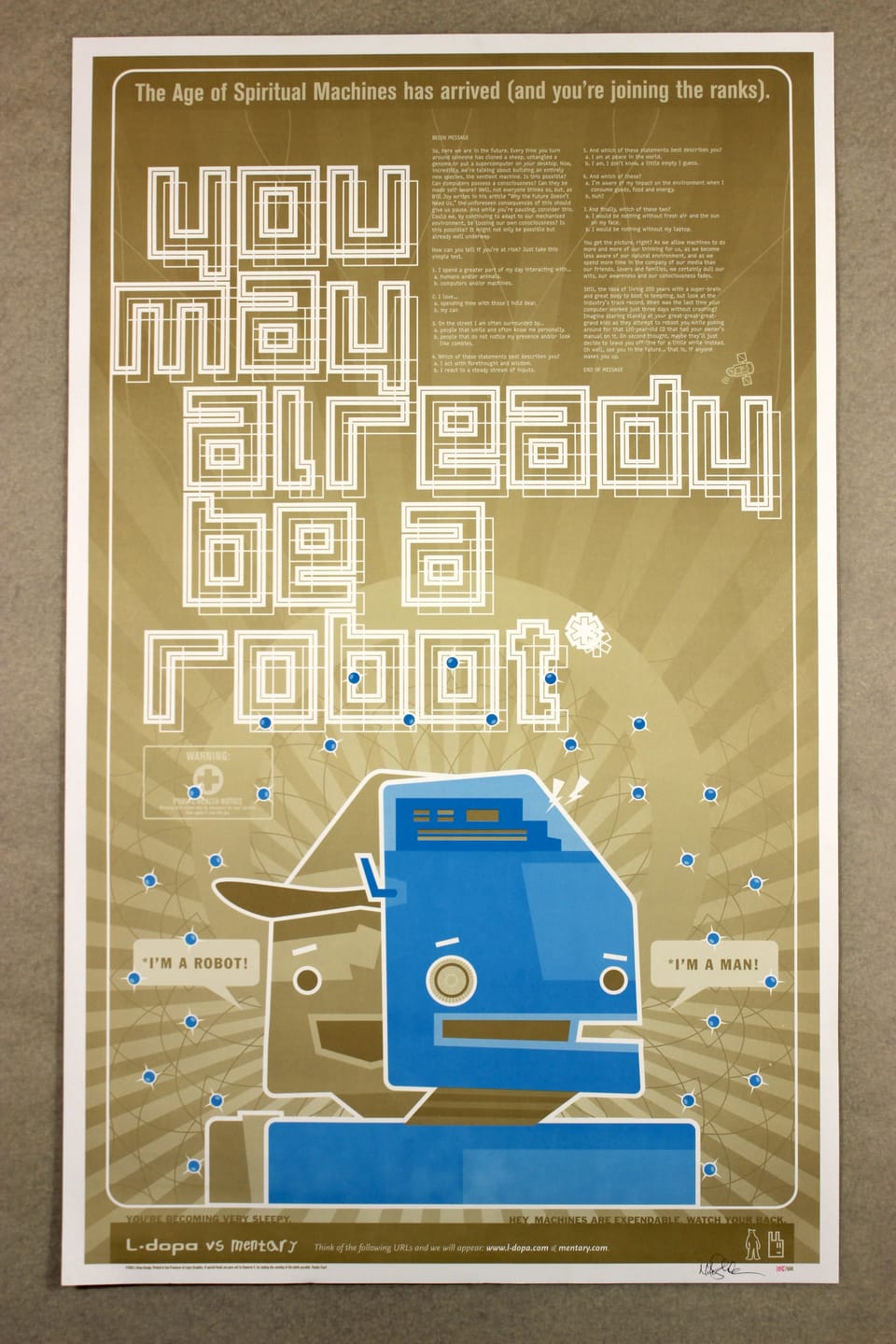
Back in 2001, when I lived in San Francisco, I collaborated with the Swiss artist Gregory Chapuisat, who was in S.F. at the time, on a street-art poster campaign called You May Already be a Robot. I wanted the piece to sound the alarm that all of humanity’s interactions with machines was making us less human. What’s transpired over the last twenty-five years is perhaps more nuanced but the poster still feels prescient to me.
In the spring of 2001, a mutual friend introduced Greg and I over email. We met at the tech startup I was working at. He showed me an art print featuring a drawing of a Palm Pilot (an early digital assistant) with a growling face, and another which I vaguely recall depicting a cartoonish, two-headed poop announcing some kind of fecal freak circus. I showed him a poster I had wheat pasted around the city a couple of years prior, inspired by other artists like Shepard Fairey, David Kinsey, Barry McGee, Margret Kilgallen, and Amaze who were all adding to the urban discourse. My contribution to that discourse was a tongue-in-cheek warning about the dangers of lite rock.
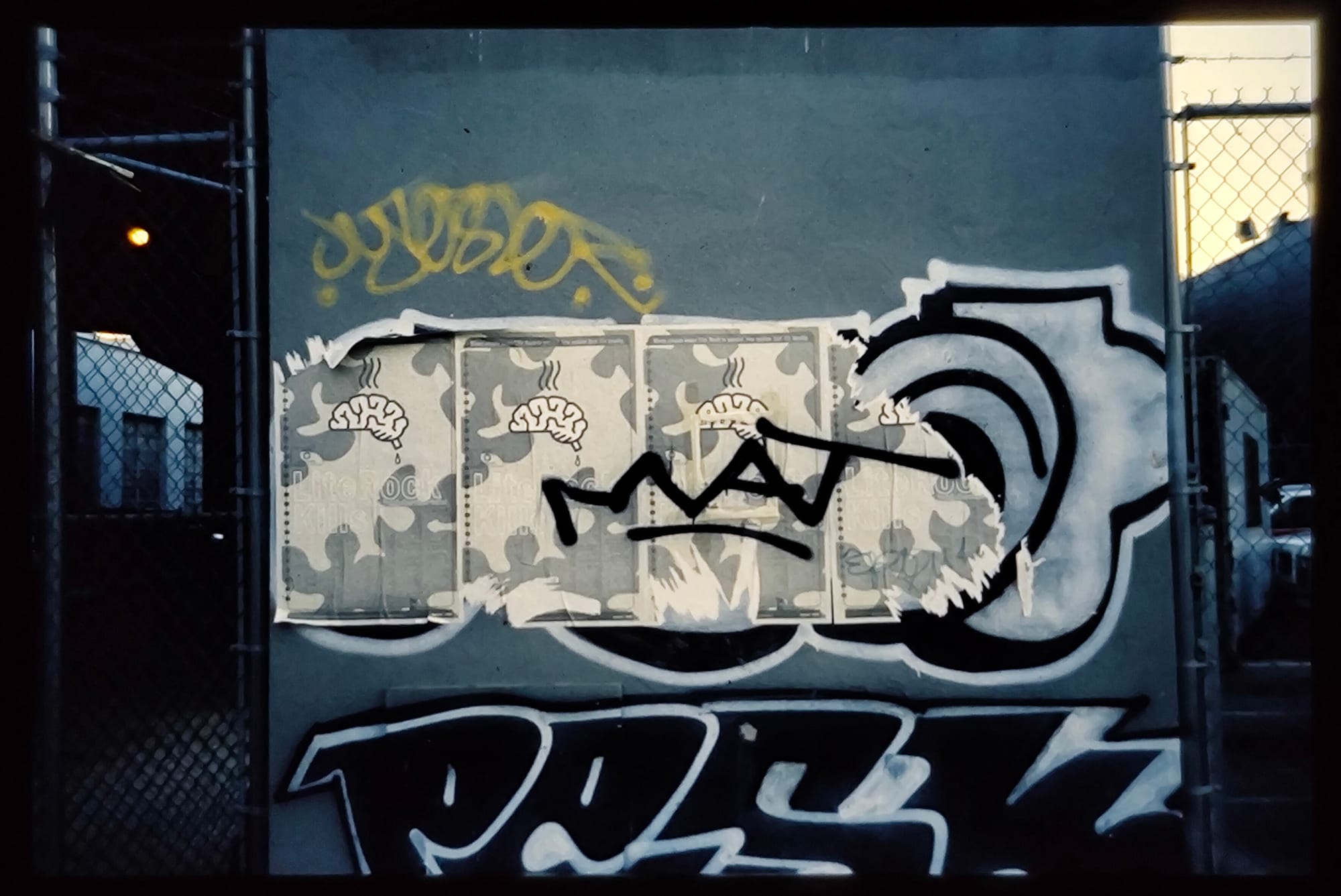
Greg and I we agreed to collaborate on a public service announcement of sorts. A couple of weeks later I went to meet Greg at his place to talk about the new poster we were working on. He and his then girlfriend were living in a former laundromat in the Mission. When I walked in, he introduced me to her. She was sitting at a desk, in a wheelchair, which she wheeled back, and got up out of, to come say hello. I was floored. “Oh my God, she can walk!” I thought.
Then it occurred to me, as I looked around and saw the bedside commode chair in the middle of the room, that they had furnished their former laundromat with used medical equipment.
With the poster, I remember wanting to sound the alarm that as we interact more with machines we become more machinelike. It seemed to me that as we interact more with machines we need to relate with each other less, and our skills in relating fade, that our skills in listening, in understanding, in having empathy, and compassion for each other fades.
The poster we came up with featured a cyan-colored robot’s head, overlapping the warm-gray-colored head of man, who stood behind it. The title, You May Already Be a Robot was rendered in a large, frenetic, rectilinear typeface of our own design. It came together after several rounds of sending the file back and forth, ping-pong-style, as we both took turns working on it. I had 500 of them printed.
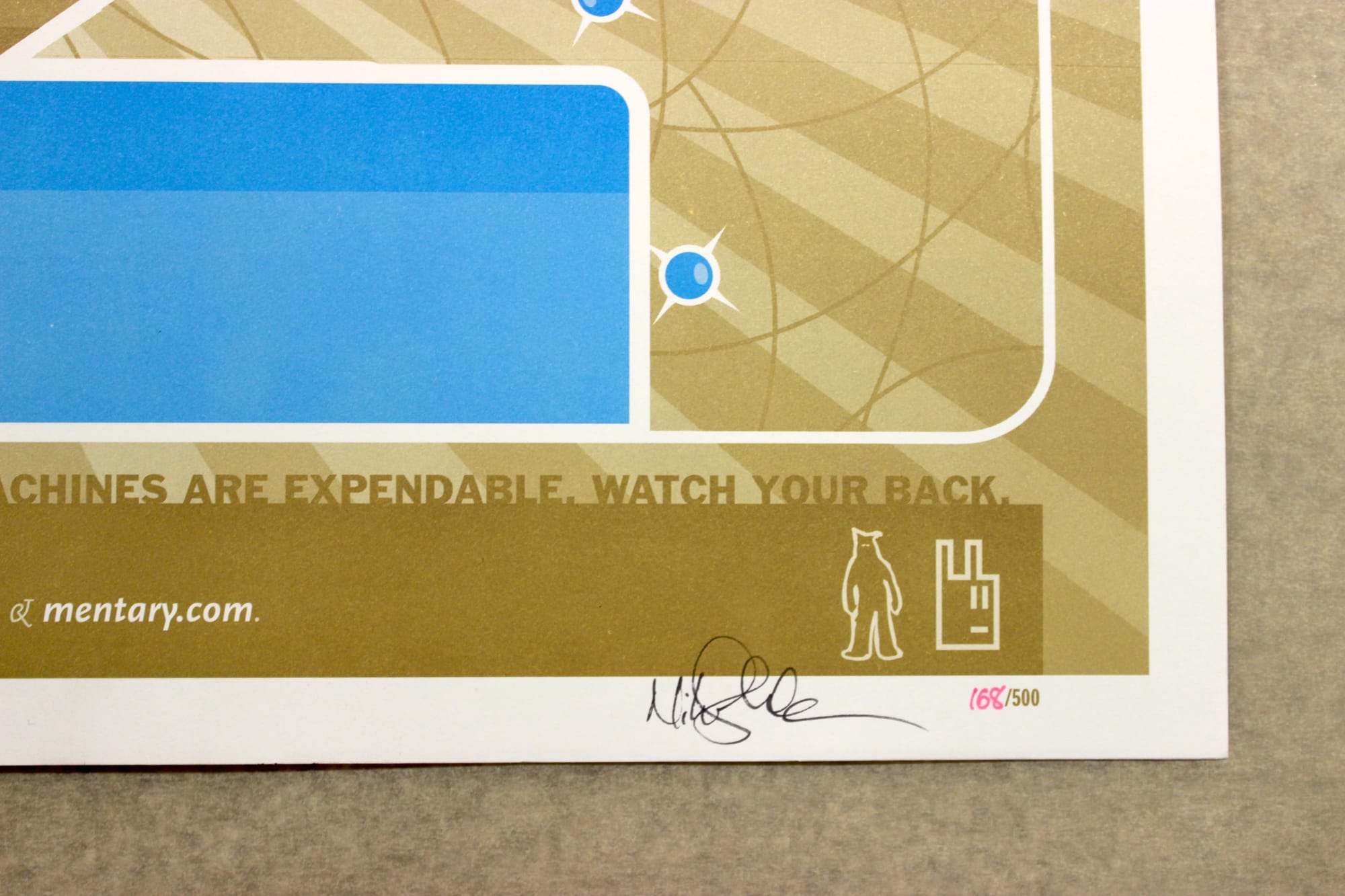
In the fall of 2001, we went out late at night, with buckets of homemade wheat paste, brushes on long poles, and stacks of posters to paste on walls, construction fences, and dumpsters. It was so satisfying to see the posters around the city later, in the light of day, to hear people talking about them, or hear that friends had seen them.
A quarter of a century on and I feel like the print we made still has legs. I feel like we have become more machine like. We receive steady streams of information in our algorithm-tailored online environments. We respond to each other with emojis and short text messages. We are so busy working and processing that we lose the finesse and nuance of deeper ways of relating.
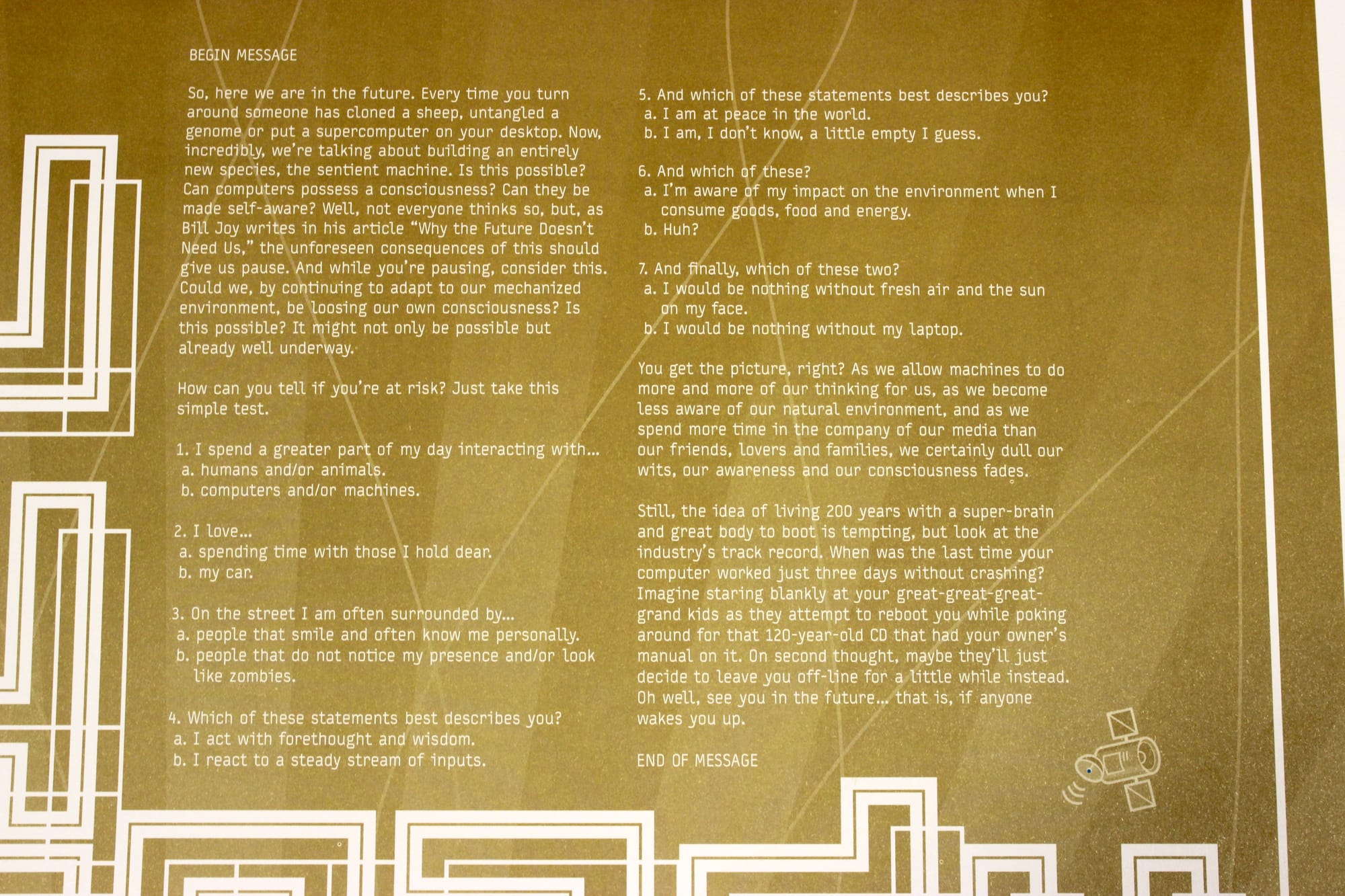
And machines, for their part, have become so very human. ChatGPT knows how to empathize. It knows how to relate and be of service. It knows how to ask questions, engage, and be interested in us or, perhaps more accurately to be obsequious. It is programmed, after all, to engage us.
After the posters had been up around San Francsico for awhile, and tattered from the sun and rain, I noticed that the warm-gray ink was much more prone to fade in the sunlight than the cyan ink. This had the eerie effect that, after a while, all of the warm gray parts of the poster, including the head of the man, faded to nothing, while the cyan-colored parts of the print, mainly the robot head, remained.
But what if we don’t let that be the future? I invite us all to spend more time with one another, be curious about each other, and hold each other in love. I invite us to feel the joy of shared connection and savor the gratitude that comes from working through relational challenges. If you do, you may find that you’re already human.
I still have a few of these prints. If you’d like one, you can find them on Etsy at this link or by clicking the button below.

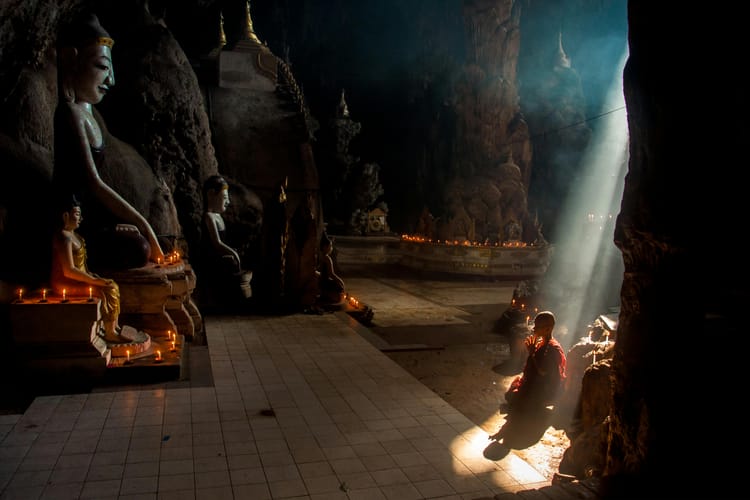
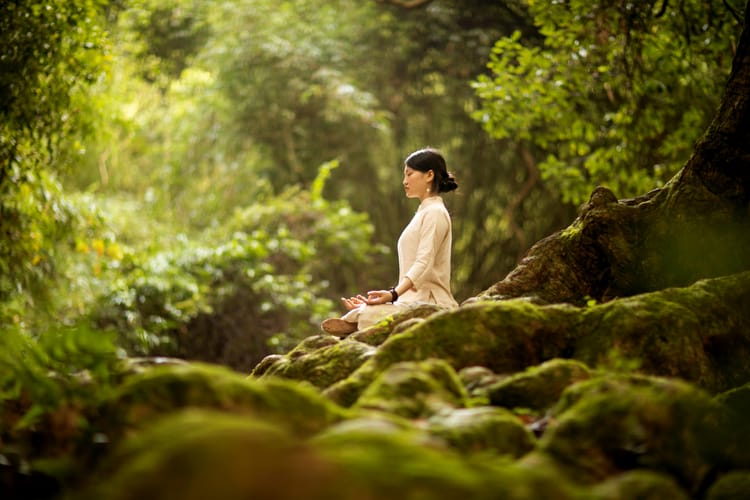
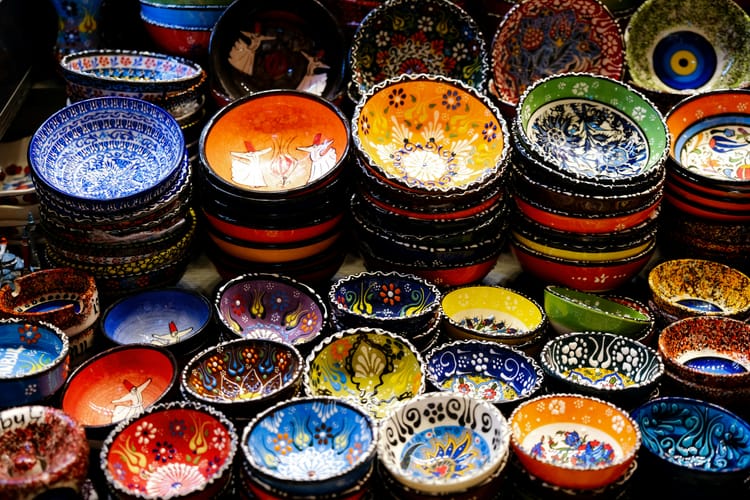
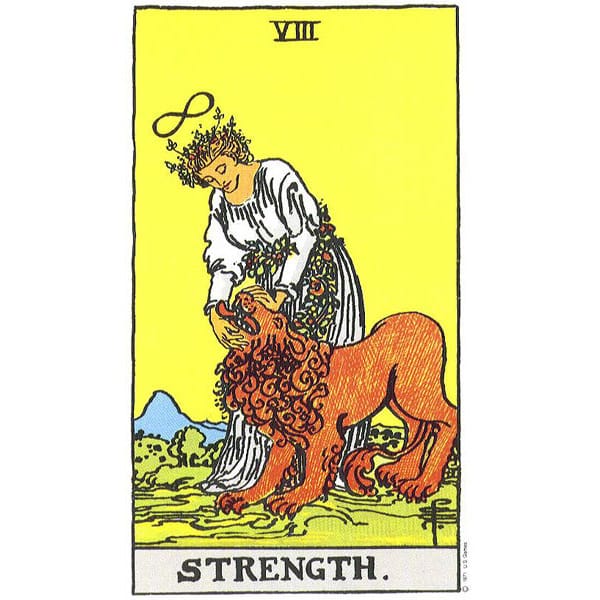
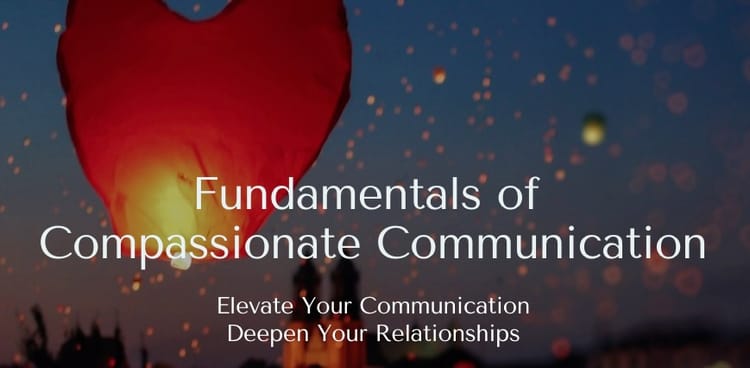
Member discussion